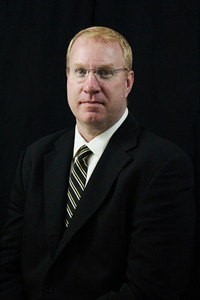When I became the leader of Northwest Rankin High School (NWRHS), I inherited a very positive school culture, characterized by strong relationships with students, staff, and the community. But one thing was missing: partnerships between the school and local businesses and other organizations. Developing a formal relationship with the local Chamber of Commerce helped. It led to a series of programs that have transformed what we do and the role our school plays in the community.
Building Relationships
As a teacher for more than 20 years, I had developed many longstanding relationships within the community. As principal, I began holding community meetings to communicate our school’s vision—and to get community members into the building. The director of the local Flowood Chamber of Commerce attended these meetings and expressed interest in sitting down and meeting with me. We already knew each other well, but this was an opportunity for us to build on that relationship and create something stronger.
Through these meetings, we worked together to establish an education committee within the Chamber. I served as its chair and on the chamber’s board of directors for the first few years, and I worked to get people from our school and local businesses involved. The committee meets every month or bimonthly, and meetings are open to anyone in the community. The committee has brought new members to the Chamber, and for our school, it has served as an important venue through which we communicate what we do for our students, and what we and our students do to support our community’s businesses.
The Snowball Effect
The impact of the education committee has been enormous. A number of different activities have funded Flowood Chamber Scholarships. The Business in the Classroom program has brought community leaders into our school. And Black and Gold Fridays have provided opportunities for businesses to attract students by offering special discounts for those wearing NWRHS colors.
But the benefits go deeper. Through the committee, we have learned about part-time and summer jobs available at local businesses, and we help find students to fill them. And the Business in the Classroom program has invited professionals from different fields into the school to discuss careers with students in related classes—nurses in the health sciences academy, for example.
When a local Caterpillar dealer told us they needed mechanics, we had company representatives talk to students about these good-paying jobs, and they opened students’ eyes to hands-on careers in technical fields. I would know—my son is attending a technical college in Georgia to become certified as a mechanic.
Strategies for Success
These experiences have been good for students, but they have also allowed business and community members to find out what’s happening in our school. I’ve learned that once people know what we’re doing and why, they’re a lot more willing to partner and help meet our needs.
Participation in these programs has exploded in recent years. We’ve since expanded their reach to all the schools in our community—K–12 and some private schools.
For me, these partnerships have reinforced the importance of being an active school leader. Ensuring that people know we are vested in the community helps build lifelong relationships.
Almost every community has some sort of Chamber or similar group. It’s important to meet with them and explore the possibility of building new relationships—or strengthening existing relationships into more formal partnerships. It’s also important to be patient—strong partnerships do not happen overnight. But the more you get involved in the community, the more quickly these relationships can form.
Finally, along with being out in the community sharing your school’s story, it’s also important to keep bringing people from the community into the building so they can see the good things happening. After all, if you don’t tell your story, someone else will.
Schools are only as strong as the community they are in—and the community is only as strong as its schools. As school leaders, it is our responsibility to find new ways to build stronger partnerships that benefit our students, our schools, and our communities.


3 Comments
Amen Principal Stein. It is truly about the relationships that we as educators cultivate those relationships inside and outside of the building.
Great Blog post Ben.
This is a great article that demonstrates the strength of our community and school. Go Cougars!
I absolutely agree. Anything that can benefit students in the real world I am fully on board with. These programs can help students discover what their purpose is regarding their careers and that itself is worth its weight in gold.